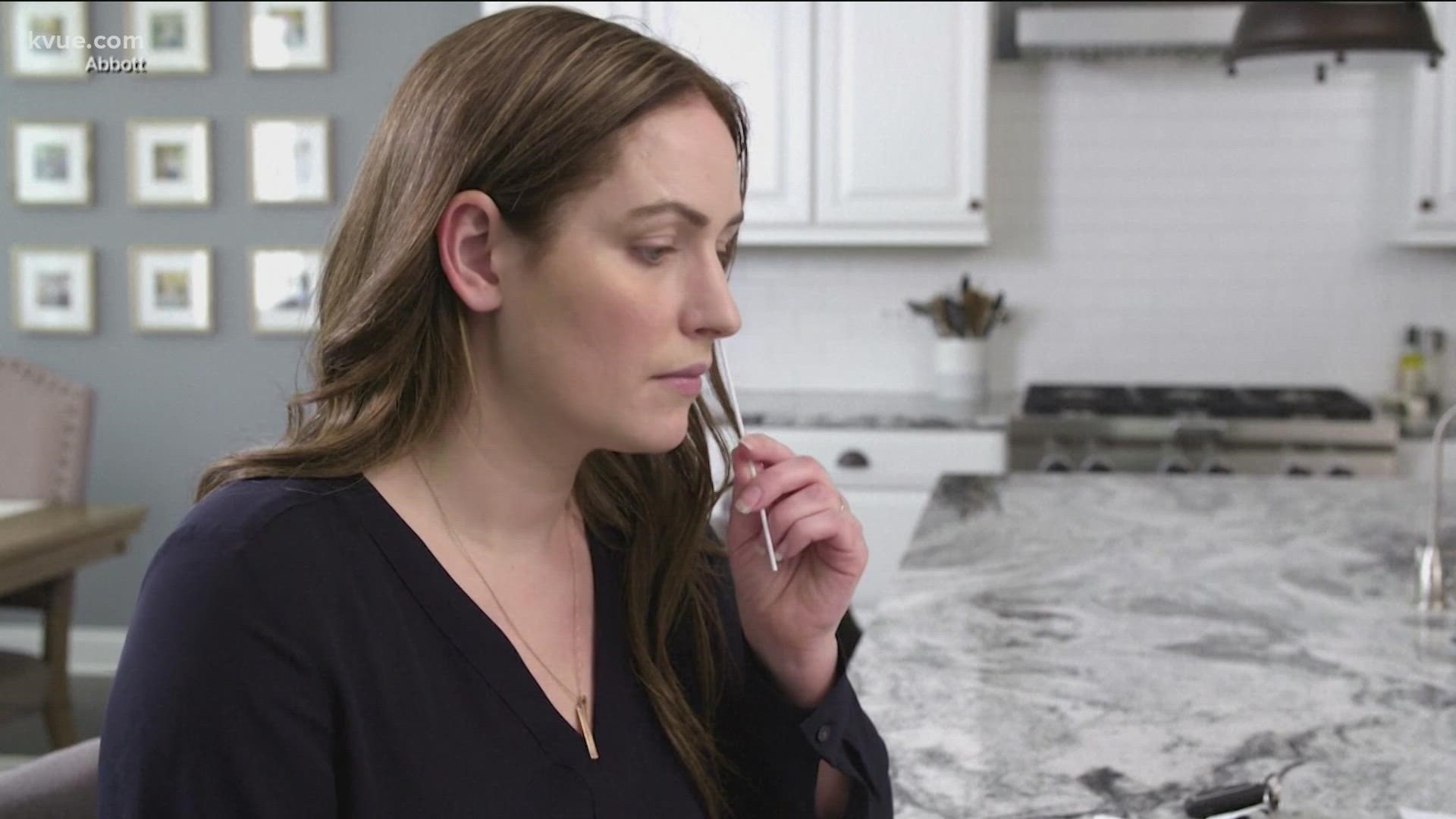AUSTIN, Texas — The Biden Administration announced in January that Americans can order free at-home COVID-19 rapid tests.
For Central Texans that have received them, it's important to focus on how the kits are being stored.
"Storing kits or keeping them at extreme temperatures below 40 degrees or over 80 may end up sort of interfering with the way they perform," said Luis Ostrosky, M.D., chief of infectious diseases with McGovern Medical School at UTHealth Houston.
As freezing temperatures are expected to hit Central Texas this week, at-home test kits sitting out in cold mailboxes or doorsteps could cause a false negative result.
"There's a gradient of fluid movement in those little test strips. So if they get wet at all, it ruins a test and you should not use them at all," explained Dr. Ostrosky.
Wet packaging from rain or snow is a first indicator of a faulty test.
Ostrosky told KVUE if the liquid inside a kit does freeze, it's recommended not to use it. According to the FDA, it's very important for test kits to be used and stored at room temperature.
If the liquid inside a test kit isn't frozen, it's still recommended to let test kits warm up in your home.
However, health experts caution the difference between at-home antigen tests compared to PCR tests, which are more accurate.
"The rapid antigen test, which is what's being distributed, are meant to be used primarily when you're symptomatic. So if you're showing symptoms and you test positive, you've made the diagnosis, you know you have COVID. If you test negative, it doesn't rule it out, unfortunately. So the recommendation is to test again in 24 hours, maybe even again at 48 hours, or just go ahead and get a PCR, which will be the tiebreaker," said Ostrosky.
Austin Regional Clinic (ARC) is providing PCR tests inside their clinics and drive-thru locations, not antigen tests.
"These are more accurate than antigen tests," said Dr. Manish Naik, ARC chief medical officer.
The FDA released information last week on what to do if your test is left out in the cold.
“Since shipping conditions may vary, test developers perform stability testing to ensure that the test performance will remain stable when tests are stored at various temperatures, including shipping during the summer in very hot regions and in the winter in very cold regions,” the statement said.
If you think you had a problem with a COVID-19 test, the FDA encourages you to report the problem through the MedWatch Voluntary Reporting Form.
PEOPLE ARE ALSO READING:

